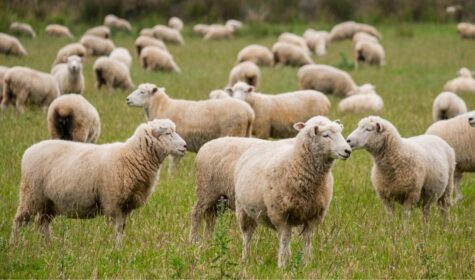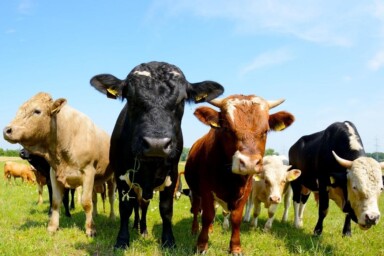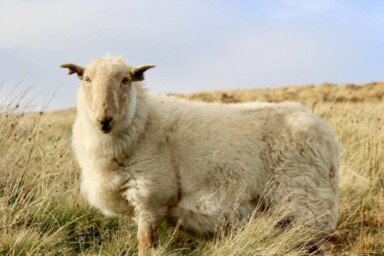If we are to address the challenges of climate change, biodiversity decline and the crisis in public health, we must tackle the fundamental issues in our food and farming systems. The dominant industrial model of food production is hugely damaging to both people and planet. Yet farming, with grass fed livestock as a key part of it, has the potential to be perhaps the biggest nature-based solution to climate change.
The debate about the role of livestock in climate-friendly farming systems has become too simplistic – reduced to ‘animals versus plants’. Yet this fails to differentiate between livestock that are part of the problem, and those which are a key part of the solution. We need to look at the question of livestock from a whole food system perspective, considering the many social and environmental factors, and evaluating the impact of animal agriculture in its proper context.
Therefore, cutting all meat consumption is not the simple answer to saving the planet. Instead, we must look at the sustainability of all foods, both plant and animal-based, and make a more nuanced choice about what we should eat to be healthy and sustainable, on the basis of how these foods are produced. In other words, ‘it’s not the cow, it’s the how, the where and the why’. Crucially, we should align our diets as far as reasonably possible with what can be produced sustainably in the countries or regions in which we live. Re-localising our food systems is important for future resilience and reducing our climate impact.
Key Points Summary
- Industrial livestock systems are absolutely part of the problem, contributing to climate change, biodiversity decline, poor animal welfare and human health issues.
- But pasture-based livestock, such as cattle and sheep, can work in harmony with nature, helping restore soil health and biodiversity, whilst producing nutrient-dense food.
- Assessing the carbon footprint of food based on global figures can be misleading because the footprint can vary drastically based on where and how it is produced.
- Reducing UK beef production and meeting demand through imports from countries with higher emissions per kilo of meat than the UK could increase global emissions.
- The current way the warming impact of methane emissions is measured (GWP100 equivalence metric) is flawed. So, while methane emissions from cattle and sheep are quite large (and account for 4-5% of UK GHG emissions) their actual impact on global warming is smaller than is generally understood. An improved method of measurement, called GWP* should instead be adopted.
- Soils are the world’s biggest terrestrial carbon store but intensive farming is causing them to be depleted. A return to mixed farming, with diverse grasses and livestock integrated with crop production and agroforestry, would rebuild natural soil fertility and store significant quantities of carbon.






